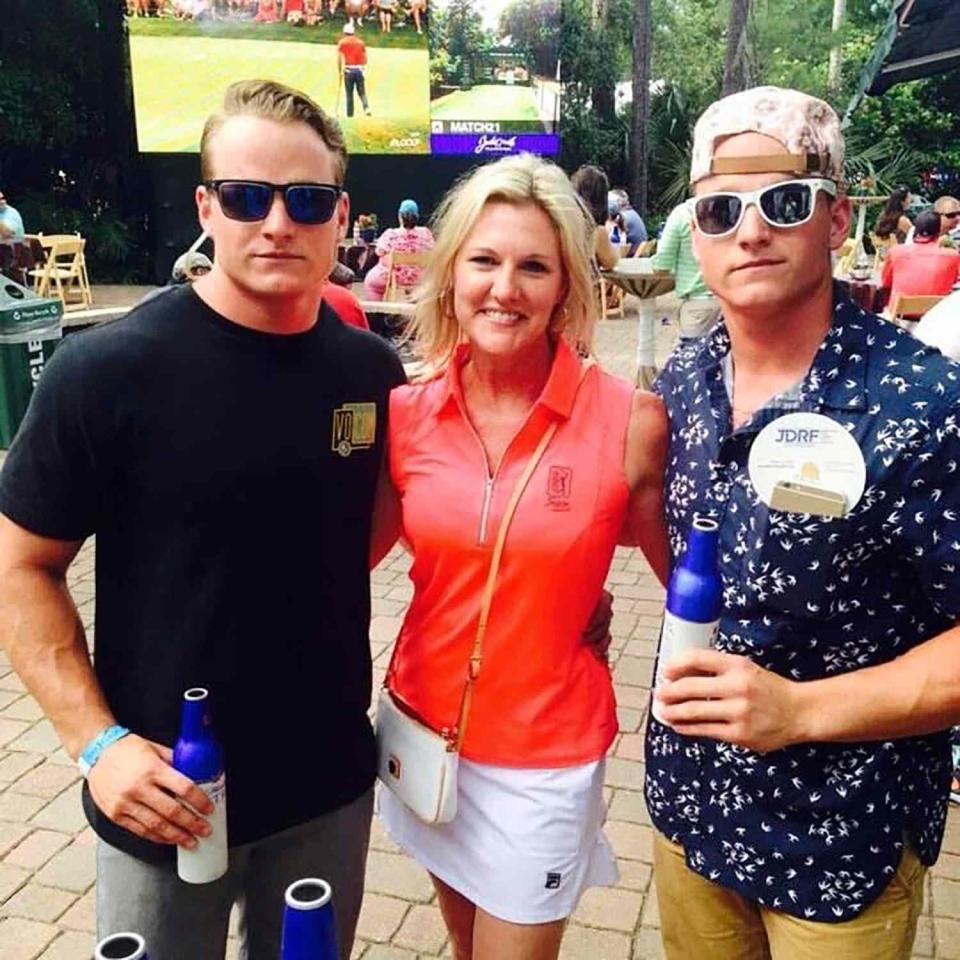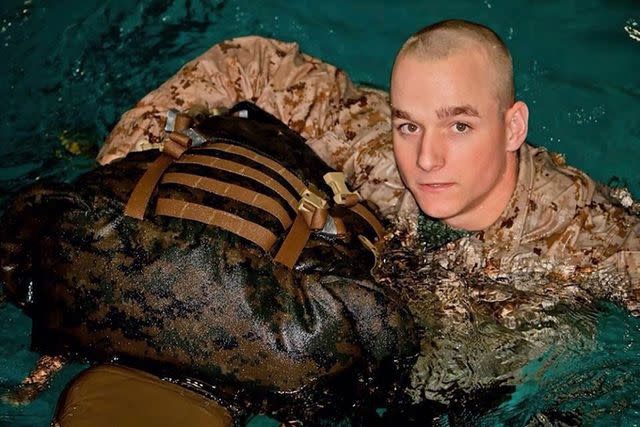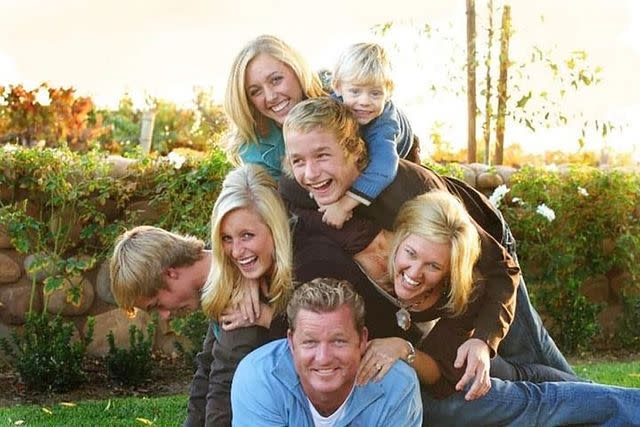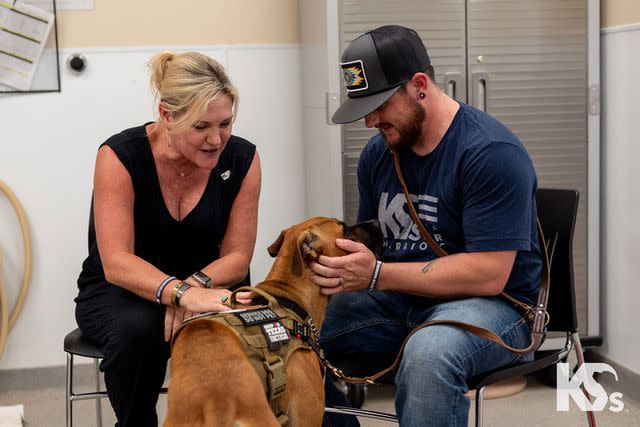Mom Whose Twin Marines Died of Suicide Pairs Vets with Rescue Dogs to Save Lives: 'I've Found Purpose' (Exclusive)
After losing her twin sons, Cherya Cavanaugh is determined to prevent similar tragedies by training service dogs with the group K9s for Warriors

Courtesy Cherya Cavanaugh
Cherya with her sons Tommy (left) and David in 2015.Two days after 24-year-old Marine Sergeant David Cavanaugh’s death by suicide in 2017, his mom Cherya found herself in a house full of grieving friends and relatives. Numb with heartache and desperate to clear her head, she climbed in her car and went for a drive, asking herself, “How can I honor David’s life in the way that he would want?”
Cherya received her answer about five minutes later while driving past a sign in front of the headquarters for the non-profit K9s For Warriors. “I pulled into the parking lot,” she recalls, “not quite sure if I was going to just sit in my car and cry or go inside and talk to someone.”
Cherya — whose life was soon rocked by another tragedy weeks later when David’s distraught identical twin brother, Tommy, a former Marine, also took his life — ended up walking into the group’s lobby that afternoon.
In between her uncontrollable sobs, she spoke with a receptionist and soon learned how the organization pairs struggling vets with shelter dogs trained to help them with PTSD, traumatic brain injuries and military sexual trauma.

Courtesy Cherya Cavanaugh
David (in 2015) during water survival training.That chance visit changed the trajectory of her life, along with the lives of countless others.
And since that day, the 53-year-old mother of five has thrown herself into helping K9 For Warriors — by raising money and training four of the group’s service dogs at her family’s Ponte Vedra, Fla., home— tackle the pressing issue of military suicides, which claims nearly 20 lives a day.
“Our family had a choice,” she says. “We could either curl up in the fetal position, crawl under the covers and never come out — or we could do our marine sons would have wanted us to do. And that was to get up and go kick life in the pants.”
The Cavanaugh brothers’ decision to enlist in the Marines — Tommy went first, followed by David a year later — after their high school graduation in 2011 surprised their parents. “We weren’t a military family,” she says, “in any way, shape or form.”
By 2017, Tommy had left the marines and become an EMT. But David, who had served two tours, including a stint as a machine gunner in Afghanistan, decided to stay in the military. By that point, recalls his mother, “life had become very different for David. He was struggling, but never to the point where he didn’t want to wake up and see tomorrow.”
For more on Cherya's story, pick up the latest issue of PEOPLE, on newsstands Friday, or subscribe here.

Courtesy Cherya Cavanaugh
The Cavanaugh family (clockwise from top left: Kate, Kelley, David, Cherya, Tom, Tommy and Cassidy) in 2009.David was preparing to deploy to Iraq in September 2017 when two Marines in their dress blues showed up at family’s home early one morning with news of his death.
Twelve weeks later, Tommy took his own life. By then David and Tommy’s shellshocked mother was focused on doing everything she could to assist K9s For Warriors, which has supplied 1,000 service dogs to struggling vets since 2011. Tommy's death only reinforced her determination to help the group.
Over the past six years she has raised tens of thousands of dollars for the group, train four service dogs — with daughter Cassidy — and often finds herself assisting vets who knew her sons and are now battling PTSD themselves.
Kele Clairmont, a former marine who became friends with David during their time in Afghanistan, had spent years battling the disorder after his 2017 discharge when his wife Kaitlyn reached out to Cherya for help in 2022.

K9 For Warriors
Cherya with Kele (and his service dog Luca) in July 2023.“I tried to push it down, but it kept getting worse and I started to get really scared,” says the 32-year-old father of three young boys who credits his service dog Luca with giving him his life back. “She turned everything around for me 180 degrees,” he says. “There’s no question about it.”
Looking back at her family’s journey over the past six and a half years, Cherya, who now serves as a K9s For Warriors board member, is heartened by how the nightmare they’ve endured is now helping prevent similar tragedies.
“Nobody wants to be in the club we’re in,” she says. “But every morning I wake up determined to ensure no other mother ever has to go through this. . . I’ve found purpose for our family’s pain.”
For confidential mental health support, vets and loved ones can contact the Veterans Crisis Line at 800-273-8255 or text 838255.
For more People news, make sure to sign up for our newsletter!
Read the original article on People.


